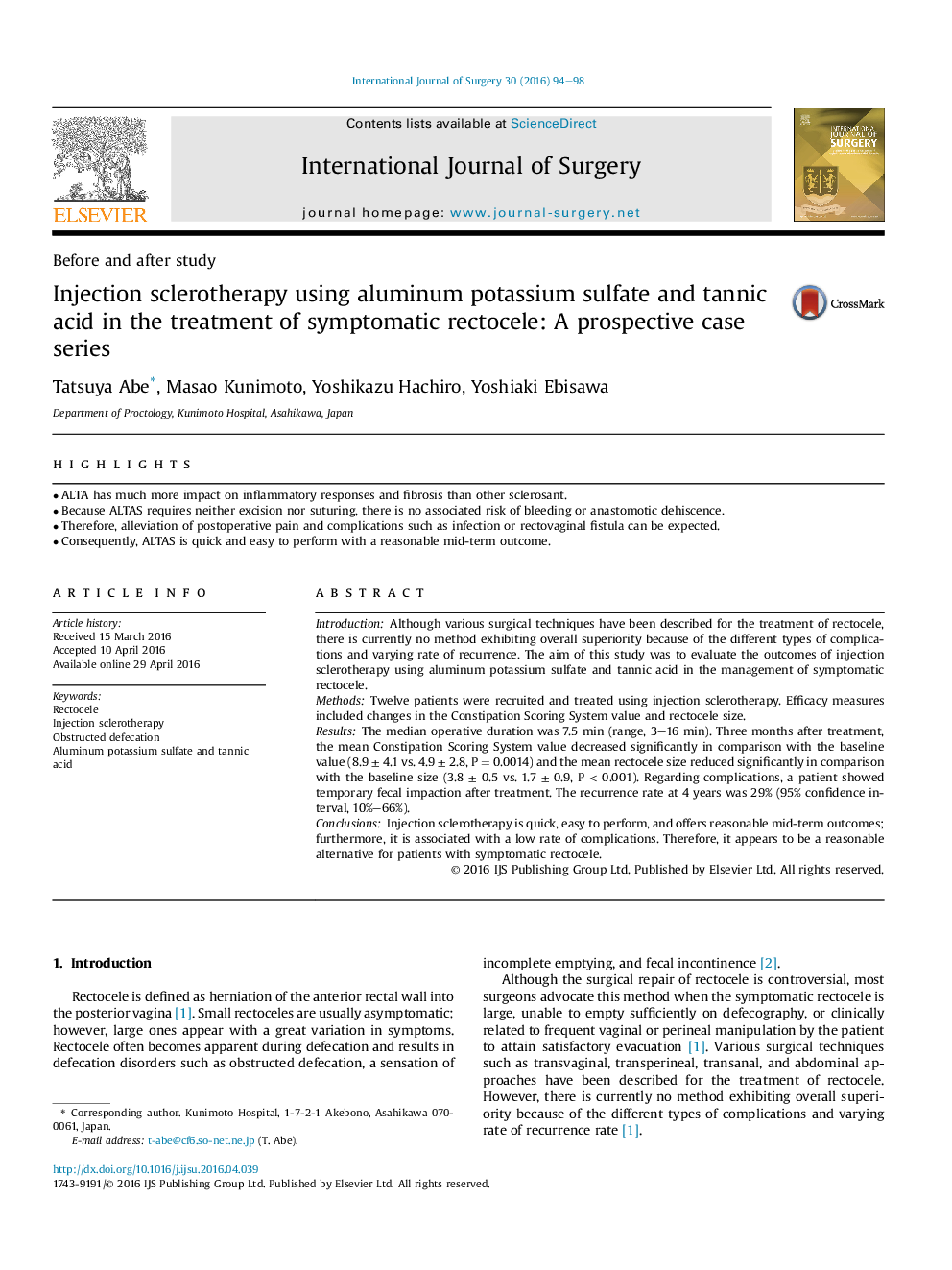| Article ID | Journal | Published Year | Pages | File Type |
|---|---|---|---|---|
| 4285341 | International Journal of Surgery | 2016 | 5 Pages |
•ALTA has much more impact on inflammatory responses and fibrosis than other sclerosant.•Because ALTAS requires neither excision nor suturing, there is no associated risk of bleeding or anastomotic dehiscence.•Therefore, alleviation of postoperative pain and complications such as infection or rectovaginal fistula can be expected.•Consequently, ALTAS is quick and easy to perform with a reasonable mid-term outcome.
IntroductionAlthough various surgical techniques have been described for the treatment of rectocele, there is currently no method exhibiting overall superiority because of the different types of complications and varying rate of recurrence. The aim of this study was to evaluate the outcomes of injection sclerotherapy using aluminum potassium sulfate and tannic acid in the management of symptomatic rectocele.MethodsTwelve patients were recruited and treated using injection sclerotherapy. Efficacy measures included changes in the Constipation Scoring System value and rectocele size.ResultsThe median operative duration was 7.5 min (range, 3–16 min). Three months after treatment, the mean Constipation Scoring System value decreased significantly in comparison with the baseline value (8.9 ± 4.1 vs. 4.9 ± 2.8, P = 0.0014) and the mean rectocele size reduced significantly in comparison with the baseline size (3.8 ± 0.5 vs. 1.7 ± 0.9, P < 0.001). Regarding complications, a patient showed temporary fecal impaction after treatment. The recurrence rate at 4 years was 29% (95% confidence interval, 10%–66%).ConclusionsInjection sclerotherapy is quick, easy to perform, and offers reasonable mid-term outcomes; furthermore, it is associated with a low rate of complications. Therefore, it appears to be a reasonable alternative for patients with symptomatic rectocele.
